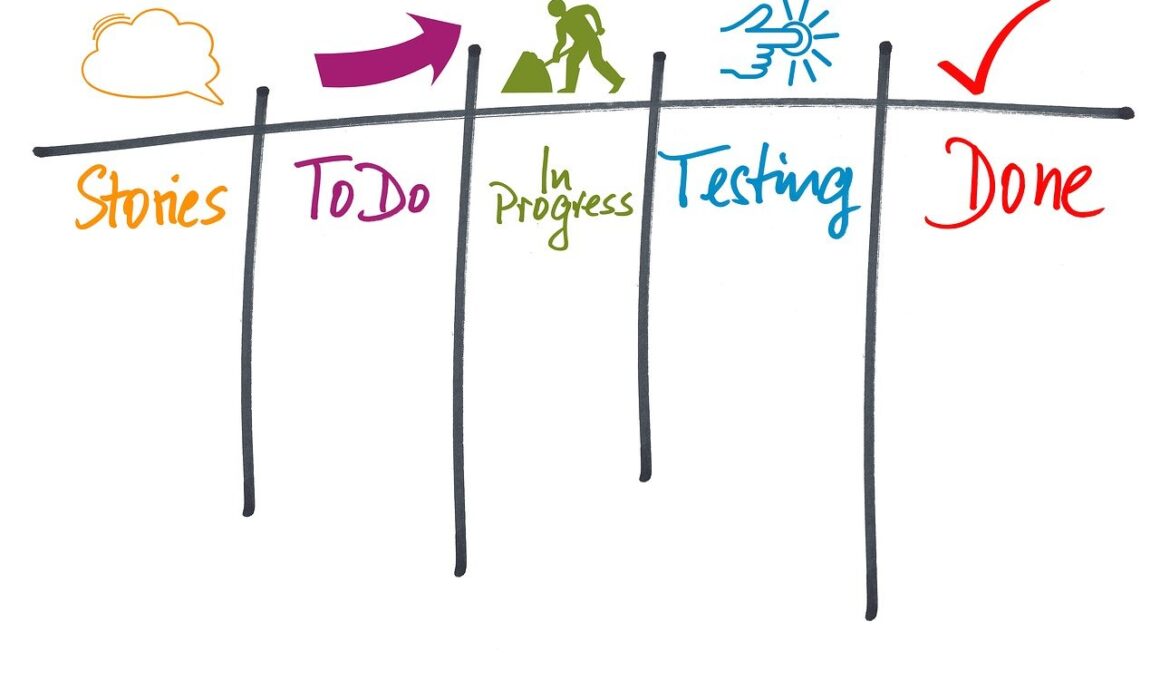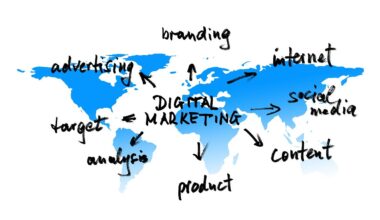Tips for Training Your Team on Social CRM Workflow Tools
Effective training for Social CRM workflow tools is essential for maximizing the potential of these platforms within your organization. Start by creating a detailed training plan that clearly outlines both the goals and objectives of the training sessions. Begin by assessing the current skill levels of your team members. Knowing where they stand allows you to tailor your training approach accordingly. Offer a mix of theoretical knowledge and practical applications, ensuring comprehensive understanding. Utilize real-life scenarios related to your industry to make the training more relevant and engaging for participants. Enable hands-on practice with the tools to reinforce learning. Incorporate live demonstrations and interactive workshops during your training sessions. This increases retention and helps your team gain confidence in using the tools effectively. Regularly update your training materials to reflect any changes in software or best practices. Incorporate feedback mechanisms to continuously improve your training sessions, ensuring they meet the evolving needs of your team. Foster an environment where team members feel comfortable asking questions and sharing insights with one another, promoting collaborative learning and growth throughout the organization.
Additionally, it’s important to include ongoing support as part of your training strategy. After the initial course, maintain an accessible resource library that includes guides, FAQs, and tutorial videos for employees to refer to as needed. Schedule regular check-ins and refresher sessions to keep skills sharp and address any challenges that arise while using the tools. Encourage a culture of learning by promoting online forums or discussion groups where employees can share experiences and solutions. Consider appointing Social CRM champions or experts within your team who can assist others and ensure proficiency. Recognizing these individuals through incentives can motivate owners and create a positive atmosphere for growth and development within the workforce. It’s also advisable to implement a rewards system to highlight employee successes related to using Social CRM tools effectively. By doing so, you can further incentivize best practices and productivity improvements. Create performance metrics that align with the organization’s objectives that employees can aim for in their daily routines. This approach can help validate the importance of the tools and enhance team morale.
Measuring Training Effectiveness
Measuring the effectiveness of your training is key to understanding its impact on your organization. Use performance metrics before and after the training sessions to gauge improvements among participants. Set clear key performance indicators (KPIs) that reflect the desired outcomes of using Social CRM tools effectively. Feedback from team members is invaluable; use surveys to gather insights on their experiences and areas of difficulty. Adjust your training methods based on these responses to address gaps in knowledge and skills. Another effective way to measure understanding is through creating practical assessments or scenario-based tasks. By evaluating whether group members can apply their knowledge in real situations, you gain insight into their learning progress. Ensure that leadership is involved in this assessment process, as their buy-in will foster a culture that values continuous growth and development. Make follow-ups to check in on how well they are applying what they learned in day-to-day operations. By monitoring these aspects continuously, you can make informed decisions about the effectiveness of your training, ultimately enhancing the capabilities of your team.
The importance of fostering a positive attitude towards Social CRM training cannot be overstated. Engage your team from the outset; explain the value and benefits this CRM tool brings to their roles and the organization as a whole. Highlight success stories from other businesses or departments utilizing Social CRM tools effectively. Discuss how efficient workflow management can help reduce workloads, improve customer engagement, and drive overall success. Encourage active participation by creating a supportive environment for open discussions and feedback. Utilize gamification strategies by introducing challenges or competitions related to learning the tools. Prizes for top performers can stimulate enthusiasm and motivation among team members. Establish mentorship opportunities where experienced users can guide others, emphasizing collaboration and sharing of knowledge for everyone’s benefit. Address any fears or concerns around adopting new technology proactively, highlighting the long-term advantages. Regularly remind your team of the available support and resources to alleviate anxiety about the transition. Enhancing the team’s confidence in their ability to master Social CRM tools will lead to a smoother migration and long-term success in its implementation.
Ongoing Learning and Development
As technology advances, so too should the training you provide for your Social CRM tools. Schedule and promote regular training sessions that not only focus on initial skill-building but also on continuous learning opportunities. Encourage participation in webinars, workshops, and industry conferences that offer valuable insights and refreshers. Engage with community forums where updates and best strategies are shared, keeping your team well-informed about the latest advancements. Leverage social learning through platforms where employees can learn from one another’s experiences and share best practices regularly. By fostering a culture of ongoing learning, you directly contribute to team members’ professional growth, which can positively impact their job satisfaction. Building a solid knowledge base ensures your team is agile and capable of adapting to changes effectively. Illuminate the path to personal and career development by integrating Social CRM training within their individual development plans. Building dedicated time for learning into employee schedules demonstrates the organization’s commitment to their growth and motivates them further. Showcasing career advancement opportunities linked to skill acquisition instills a sense of purpose and ambition among your workforce.
Another vital aspect when training your team on Social CRM workflow tools is to use a variety of training methods to cater to diverse learning preferences. Some employees may prefer hands-on or visual learning approaches, while others excel in verbal instruction or written materials. Provide a well-rounded training program that offers videos, manuals, interactive sessions, and one-on-one coaching. Creating a blended learning model that integrates both online and offline training options can help accommodate everyone’s unique styles. Taking into account the different learning preferences will help increase the effectiveness of your team’s training experience. Encouraging peer-to-peer learning through group activities or collaborative projects can enhance understanding and retention as well. By allowing team members to teach each other and share perspectives, you increase confidence and inspire innovation. Recognize individuals who display enthusiasm and commitment in this collaborative learning environment, fostering a sense of belonging. By promoting teamwork and collective knowledge-sharing, you not only enrich your training sessions but build stronger relationships among your team members. This collaborative spirit can translate into productive workflows as tools are effectively utilized post-training.
Real-World Application and Empowerment
Finally, the ultimate goal of training on Social CRM tools is to empower your team to make real-world applications. Ensure that your training is embedded into day-to-day operation realities, so employees can see the direct benefits of the tools in managing customer relationships. Enable them to work on actual projects that incorporate their newly acquired skills, providing real-time feedback. To bridge the gap between theoretical knowledge and practical usage, involve them in implementation strategies to integrate Social CRM workflows seamlessly into existing processes. Encourage innovation and experimentation, allowing employees to explore creative solutions using the CRM tools. Promoting an ownership mentality where team members feel responsible for optimizing workflows will bolster their understanding of the tools. Empower them to take the initiative in suggesting improvements and sharing feedback about potential upgrades. By giving your team the agency to drive results, you cultivate a sense of pride and responsibility in using the CRM effectively. Highlighting their contributions can significantly boost engagement and promote a culture of excellence within your organization, ultimately leading to improved customer interactions and satisfaction.
In conclusion, training your team on Social CRM workflow tools encompasses various aspects centered around effective knowledge transfer, ongoing support, and an engaged learning environment. By implementing a dynamic approach that incorporates multiple training techniques while catering to individual learning preferences, you set the stage for a successful transition to these essential tools. Remember to measure the effectiveness of your training to fine-tune what works best and adjust as your organization’s needs evolve. Foster a culture of continuous learning by offering opportunities for ongoing education and professional development. A solid foundational understanding of Social CRM tools not only enhances team performance but also contributes directly to improved customer relations and overall business success. Encouraging collaboration and the sharing of best practices among team members can create a supportive and proactive atmosphere for learning. Equip your workforce with the resources and empowerment necessary to excel in their roles. The objective is to embed these tools into daily operational activities, ensuring everyone can realize the extraordinary potential of Social CRM tools. As your team becomes proficient, watch as improved interactions and satisfaction elevate the overall business landscape.


